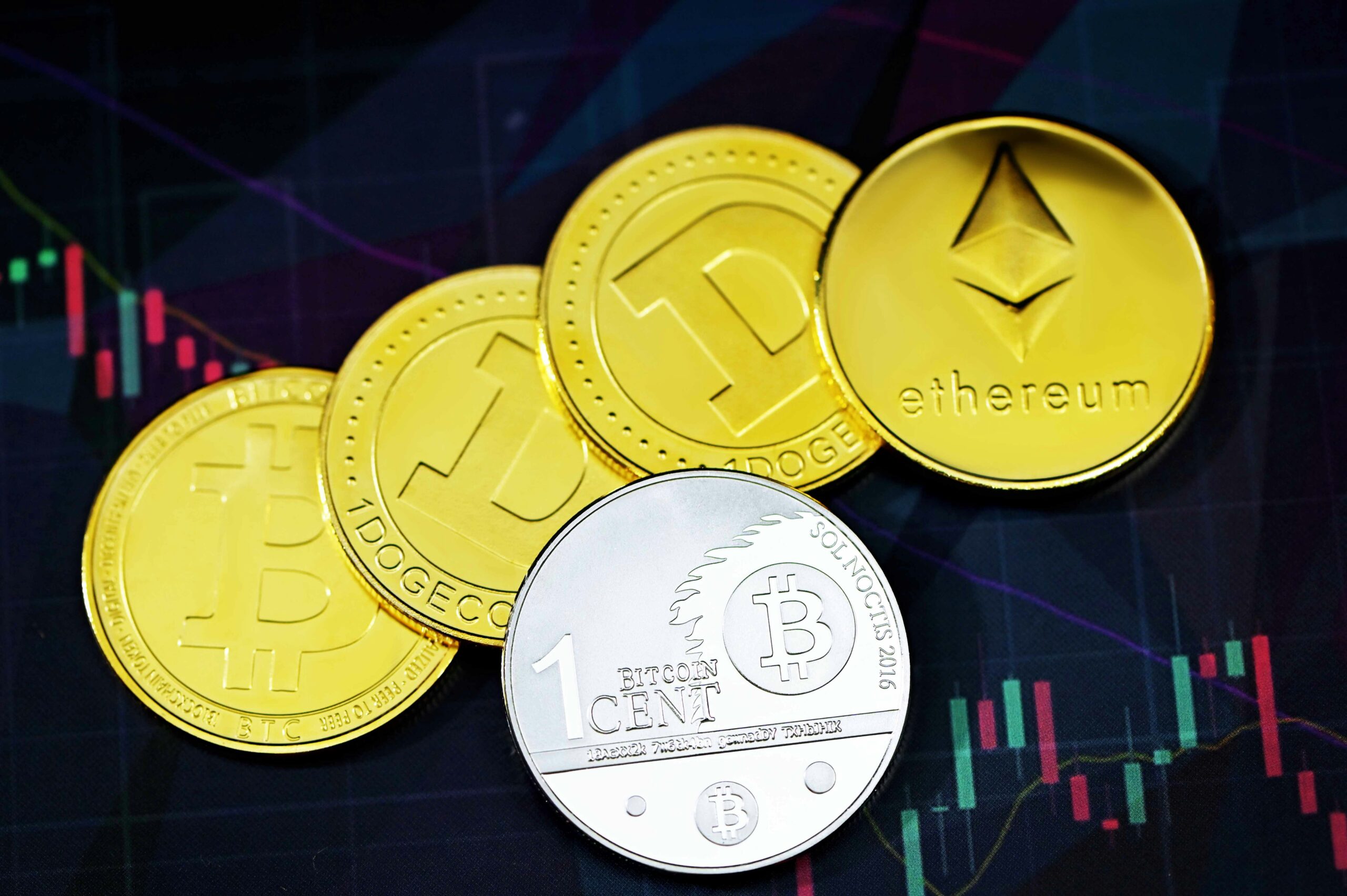Welcome to the exciting world of cryptocurrencies and blockchain technology! In recent years, cryptocurrencies have gained immense popularity as a new form of digital currency. However, with this popularity comes unique security challenges that every investor should be aware of. In this article, we will discuss the steps you can take to safely invest in cryptocurrencies, including selecting reputable exchanges and wallets, implementing security measures, and addressing common misconceptions and risks.
Selecting Reputable Exchanges and Wallets
When it comes to investing in cryptocurrencies, one of the first steps is to choose a reputable exchange and wallet. An exchange is a platform where you can buy, sell, and trade cryptocurrencies, while a wallet is a digital storage solution for your digital assets. It is crucial to select a reliable exchange that has a strong track record of security and user protection. Look for exchanges that have implemented robust security measures such as two-factor authentication and cold storage for funds.
Similarly, when choosing a wallet, opt for one that offers a high level of security. There are different types of wallets available, including hardware wallets, software wallets, and online wallets. Hardware wallets, such as Ledger and Trezor, are considered the most secure option as they store your private keys offline, away from potential online threats. Software wallets, on the other hand, are applications that you can install on your computer or smartphone. While they offer convenience, they are more susceptible to hacking attempts.
Implementing Security Measures
Investing in cryptocurrencies requires a proactive approach to security. One of the most important security measures you can take is to enable two-factor authentication (2FA) on all your accounts. 2FA adds an extra layer of protection by requiring you to provide a second form of verification, such as a unique code sent to your mobile device, in addition to your password.
Another crucial step is to regularly update your software and firmware. Developers often release updates that address security vulnerabilities, so keeping your devices and applications up to date is essential. Additionally, be cautious of phishing attempts and suspicious links. Hackers often try to trick users into revealing their login credentials or downloading malware through phishing emails or fake websites. Always verify the authenticity of the source before clicking on any links or providing sensitive information.
Addressing Common Misconceptions and Risks
While cryptocurrencies offer exciting investment opportunities, it is essential to be aware of common misconceptions and risks associated with this market. One common misconception is that cryptocurrencies are completely anonymous. While transactions on the blockchain are pseudonymous, meaning they are not directly linked to your personal identity, they can still be traced back to you through various analytical techniques.
Another risk to consider is the volatility of the cryptocurrency market. Prices can fluctuate dramatically within a short period, leading to potential losses if not managed properly. It is crucial to have a clear investment strategy and to diversify your portfolio to mitigate risks.
Furthermore, it is important to be cautious of fraudulent schemes and scams. The cryptocurrency market has seen its fair share of scams, including Ponzi schemes, fake initial coin offerings (ICOs), and pump-and-dump schemes. Always conduct thorough research before investing in any project and be skeptical of promises of high returns with little to no risk.
In conclusion, investing in cryptocurrencies can be a rewarding venture, but it requires careful consideration and proactive security measures. By selecting reputable exchanges and wallets, implementing security measures, and being aware of common misconceptions and risks, you can navigate the wild west of cryptocurrencies with confidence and protect your investments.
The rise of cryptocurrencies and blockchain technology has had a profound impact on various industries, including finance, technology, and even healthcare. As more people recognize the potential of cryptocurrencies, their popularity continues to grow, resulting in a significant increase in their value and adoption.
One of the key advantages of cryptocurrencies is their decentralized nature. Unlike traditional currencies that are controlled by central banks, cryptocurrencies operate on a peer-to-peer network, where transactions are verified by multiple participants known as miners. This decentralization eliminates the need for intermediaries, such as banks, and enables faster and more cost-effective transactions.
Furthermore, the use of blockchain technology ensures transparency and security in transactions. Every transaction made with a cryptocurrency is recorded on a public ledger, which can be accessed by anyone. This transparency not only prevents fraud and manipulation but also promotes trust among participants. Additionally, the use of cryptographic algorithms ensures the security of transactions, making it nearly impossible for hackers to tamper with the data.
With the increasing adoption of cryptocurrencies, many industries have started exploring the potential applications of blockchain technology. For example, in the finance industry, blockchain technology has the potential to revolutionize the way we transfer money, issue loans, and even trade securities. By eliminating the need for intermediaries, blockchain can reduce transaction costs and increase efficiency.
In the technology sector, blockchain technology is being utilized for various purposes, such as supply chain management, identity verification, and intellectual property protection. The decentralized nature of blockchain ensures that information cannot be altered or tampered with, making it ideal for maintaining the integrity of sensitive data.
Even the healthcare industry is exploring the use of blockchain technology to improve patient data management and ensure the privacy and security of medical records. By storing medical records on a blockchain, healthcare providers can ensure that patient data is accurate, secure, and easily accessible when needed.
Overall, the rise of cryptocurrencies and blockchain technology has opened up a world of possibilities. From revolutionizing the financial industry to transforming the way we manage data, this technology has the potential to reshape various sectors. As more individuals and businesses recognize the benefits of cryptocurrencies and blockchain, we can expect to see further advancements and innovations in the coming years.
Understanding the Security Challenges
While cryptocurrencies offer numerous advantages, they also come with unique security challenges. One of the biggest challenges is the risk of hacking and theft. Since cryptocurrencies are stored in digital wallets, they can be vulnerable to cyber attacks. It is crucial to take proactive steps to protect your investments and ensure the security of your digital assets.
Cryptocurrency theft has become a prevalent issue in recent years. Hackers have found various ways to exploit vulnerabilities in digital wallets and cryptocurrency exchanges, resulting in significant financial losses for individuals and organizations. These attacks can occur through phishing scams, malware, or even through hacking into the servers of cryptocurrency exchanges.
To mitigate the risk of hacking and theft, it is essential to adopt robust security measures. One of the first steps is to choose a reputable and secure digital wallet. There are different types of wallets available, including hardware wallets, software wallets, and online wallets. Hardware wallets, such as Ledger or Trezor, offer the highest level of security as they store your private keys offline, making them less susceptible to hacking attempts.
In addition to choosing a secure wallet, it is crucial to follow best practices for securing your cryptocurrency investments. This includes using strong and unique passwords for your wallets, enabling two-factor authentication, and regularly updating your wallet software to benefit from the latest security patches.
Furthermore, it is essential to be cautious of phishing scams and malicious websites. Hackers often create fake websites or send phishing emails that mimic legitimate cryptocurrency exchanges or wallet providers. These scams aim to trick users into revealing their private keys or login credentials, allowing hackers to gain unauthorized access to their funds. To avoid falling victim to these scams, it is important to double-check the website’s URL, enable anti-phishing measures in your email client, and never share your private keys or login credentials with anyone.
Another security measure to consider is diversifying your cryptocurrency holdings across multiple wallets and exchanges. By spreading your investments, you reduce the risk of losing all your funds in case of a security breach. Additionally, regularly monitoring your accounts and transactions can help you detect any suspicious activity and take immediate action to protect your assets.
Lastly, staying informed about the latest security trends and developments in the cryptocurrency industry is crucial. As hackers continue to evolve their tactics, it is essential to stay one step ahead by educating yourself on the latest security practices and implementing them to safeguard your investments.
In conclusion, while cryptocurrencies offer numerous benefits, it is important to be aware of the security challenges they present. By adopting robust security measures, such as choosing secure wallets, following best practices, and staying informed, you can protect your investments and ensure the safety of your digital assets in the ever-evolving landscape of cryptocurrency security.
4. User-Friendly Interface
Another important factor to consider when selecting an exchange or wallet is the user-friendly interface. Cryptocurrency trading and storage can be complex, especially for beginners. Therefore, it is essential to choose a platform that offers a simple and intuitive interface, making it easier for users to navigate and understand the process.
5. Range of Supported Cryptocurrencies
Before making a decision, it is crucial to check the range of cryptocurrencies supported by the exchange or wallet. Different platforms may support different cryptocurrencies, so ensure that the ones you are interested in are available. This will allow you to have a diverse portfolio and easily trade or store the cryptocurrencies of your choice.
6. Liquidity and Trading Volume
Consider the liquidity and trading volume of the exchange you are considering. Liquidity refers to the ease with which you can buy or sell cryptocurrencies without significantly impacting the market price. Higher liquidity and trading volume indicate a more active and liquid market, which can be beneficial for executing trades quickly and efficiently.
7. Customer Support
Customer support is an essential aspect of any exchange or wallet. In case you encounter any issues or have questions, it is important to have reliable customer support that can assist you promptly. Look for platforms that offer multiple channels of communication, such as live chat, email, or phone support, and ensure that their support team is responsive and knowledgeable.
8. Fees and Transaction Costs
Consider the fees and transaction costs associated with the exchange or wallet. Different platforms may have varying fee structures, including deposit fees, withdrawal fees, and trading fees. It is important to understand these costs upfront to avoid any surprises and to ensure that they align with your budget and trading strategy.
9. Mobile Accessibility
With the increasing popularity of mobile devices, having access to your cryptocurrencies on the go can be advantageous. Consider whether the exchange or wallet offers a mobile app or a responsive mobile website. This will allow you to manage your cryptocurrencies conveniently from your smartphone or tablet, providing flexibility and accessibility.
By carefully considering these factors, you can select reputable exchanges and wallets that meet your specific needs and requirements. Remember, the security and reliability of your chosen platform are crucial for the safe and successful management of your cryptocurrencies.
5. Utilize Hardware Wallets
Consider using hardware wallets for an added layer of security. Hardware wallets are physical devices that store your private keys offline, making it difficult for hackers to access your cryptocurrencies. These wallets typically require a physical button press to confirm transactions, providing an extra level of protection against unauthorized access.
6. Secure Your Devices
Ensure that your devices, such as your computer, smartphone, or tablet, are adequately protected. Install reputable antivirus software and keep it up to date to detect and prevent malware or other malicious software from compromising your security. Additionally, enable device encryption and set up a strong lock screen password or PIN to prevent unauthorized access.
7. Backup Your Wallet
Regularly backup your cryptocurrency wallet to protect against data loss. Store these backups in secure locations, such as encrypted external hard drives or offline storage devices. By having a backup, you can easily recover your wallet in case of device failure or loss.
8. Be Mindful of Public Wi-Fi
Avoid accessing your cryptocurrency accounts or making transactions while connected to public Wi-Fi networks. Public Wi-Fi networks are often unsecured, making it easier for attackers to intercept your data. Instead, use a trusted and secure network, such as a personal hotspot or a VPN (Virtual Private Network) when accessing your accounts.
9. Educate Yourself
Stay informed about the latest security threats and best practices in the cryptocurrency industry. Educate yourself on common scams and phishing techniques to recognize and avoid them. By staying proactive and knowledgeable, you can better protect your cryptocurrencies and minimize the risk of falling victim to security breaches.
10. Regularly Monitor Your Accounts
Regularly monitor your cryptocurrency accounts for any suspicious activity or unauthorized transactions. Set up alerts or notifications to receive real-time updates on your account activity. If you notice any unusual activity, take immediate action by contacting your exchange or wallet provider and changing your passwords.
By implementing these security measures, you can enhance the protection of your cryptocurrencies and reduce the risk of potential security breaches. Remember, the cryptocurrency market is constantly evolving, and staying vigilant is crucial to safeguarding your investments.
4. Market Manipulation
Another risk associated with cryptocurrencies is the potential for market manipulation. Due to the lack of regulation and oversight, certain individuals or groups can manipulate the prices of cryptocurrencies for their own gain. This can lead to sudden and drastic price movements that can negatively impact investors.
It is important to stay vigilant and be aware of potential signs of market manipulation, such as unusual trading patterns or sudden spikes in volume. Conduct thorough research before investing in any cryptocurrency and consider seeking advice from trusted sources or financial professionals.
5. Security Concerns
While cryptocurrencies offer the promise of secure transactions through the use of blockchain technology, there are still security concerns that need to be addressed. Hackers and cybercriminals are constantly looking for vulnerabilities in cryptocurrency platforms and wallets to exploit.
To protect your investments, it is crucial to use secure wallets and platforms that have robust security measures in place. Implementing strong passwords, enabling two-factor authentication, and regularly updating your software can help reduce the risk of unauthorized access to your cryptocurrencies.
6. Lack of Fundamental Value
One common misconception about cryptocurrencies is that they have intrinsic value. Unlike traditional assets such as stocks or real estate, cryptocurrencies do not have underlying assets or cash flows that can determine their value.
Instead, the value of cryptocurrencies is largely driven by market speculation and demand. This means that the price of a cryptocurrency can be highly volatile and subject to sudden changes based on market sentiment. It is important to understand this fundamental difference and approach cryptocurrency investments with caution.
7. Limited Acceptance
Although the adoption of cryptocurrencies has been growing in recent years, they still have limited acceptance as a form of payment. Many businesses and individuals are still hesitant to accept cryptocurrencies due to concerns about price volatility, regulatory issues, and lack of familiarity.
Before investing in cryptocurrencies, consider the practicality of using them as a medium of exchange. While some major retailers and online platforms accept cryptocurrencies, their acceptance is not yet widespread. This limited acceptance can affect the liquidity and usability of cryptocurrencies as an investment.
In conclusion, while investing in cryptocurrencies can offer significant opportunities for growth and profit, it is crucial to be aware of the potential risks and misconceptions associated with this investment class. By understanding and addressing these risks, investors can make informed decisions and navigate the cryptocurrency market with greater confidence.




